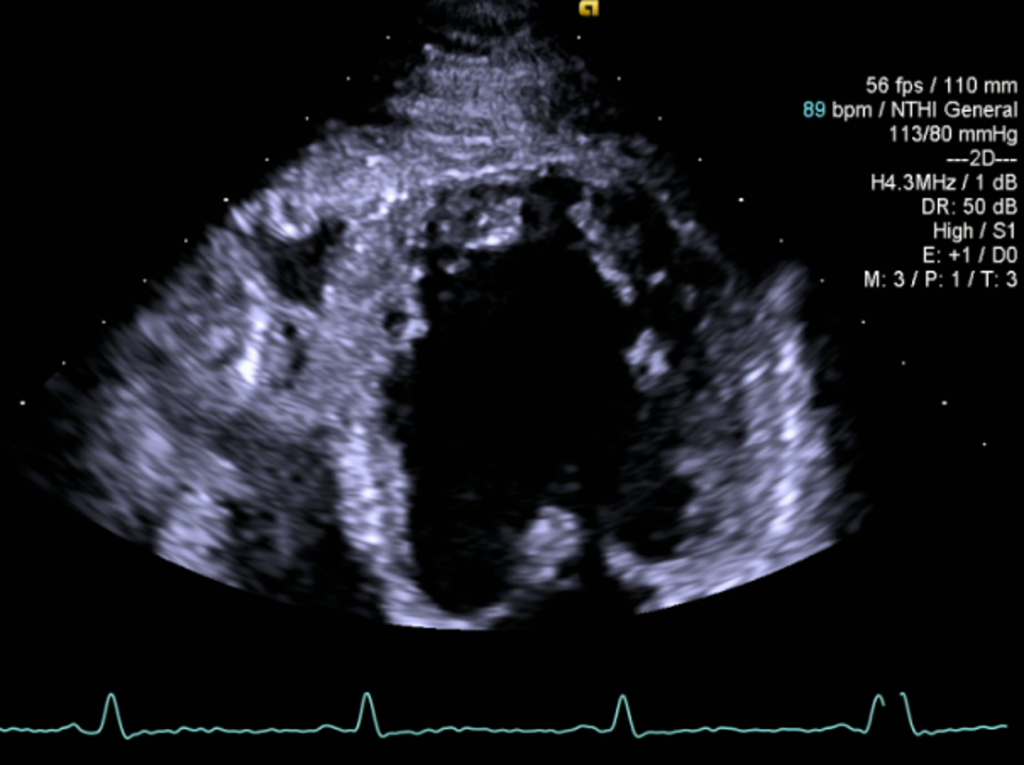Definition
LVNC cardiomyopathy is characterized by specific left ventricular morphology carachterized by numerous prominent trabeculations and deep intertrabecular recesses, as well as diminished systolic function with or without associated chamber dilation. LVNC is more common than previously recognized, with incidence estimated between 0.05% and 0.25% per year in general population. The true prevalence of LVNC and its proportion in causes of sudden cardiac death remains unknown.
LVNC may be in isolated form or coexist with other cardiac and/or systemic (mainly neuromuscular) conditions. Clinical presentation of isolated LVNC has a wide variability, ranging from latent course to life-threatening ventricular arrhythmias, congestive heart failure, thromboembolic complications and suden cardiac death. Based on clinical presentation, the following forms of LVNC are recognized: isolated form with normal LV size and function, dilated form with systolic dysfunction, hypertrophic form mimicking hypertrophic cardiomyopathy, mixed hypertrophic-dilated form (with “undulating phenotype”), restrictive form similar to restrictive cardiomyopathy, and LVNC with congenital heart disease (commonly obstructive forms affecting the right heart).

Why to perform genetic testing in cases with LVNC?
- To perform a better risk stratification and prognosis
- To detect cases at high risk of sudden cardiac death
- To detetc family members at risk
Our LVNC genetic test panel
ACTC1, CSRP3, DSP, HCN4, LDB3, LAMP2, LMNA, MYBPC3, MYH7, PLN, NKX2-5, SCN5A, TBX1, TNNI3, TNNT2, TPM1, VCL.
Important: All our panels can be modified based on the phenotype. Please contact us if you have questions
What to expect from this test: The LVNC genetic test has a yield of 40-60%
Recommended Literature
- Left Ventricular non-compaction cardiomyopathy. Towbin JA, Jefferies JL. Lancet 2015; Volume 386(9995):813-825. https://doi.org/10.1016/B978-0-12-802393-8.00020-X
- Translating emerging molecular genetic insights into clinical practice in inherited cardiomyopathies. Asatryan B, Medeiros-Domingo A. 2018; J Mol Med (Berl). 2018 Oct;96(10):993-1024. doi: 10.1007/s00109-018-1685-y.
- Clinical genetics and outcome of left ventricular non-compactioncardiomyopathy. Sedaghat-Hamedani F, et al. Eur Heart J. 2017 Dec 7;38(46):3449-3460. doi: 10.1093/eurheartj/ehx545.
Download here interesting open access manuscripts on genetics of LVNC


